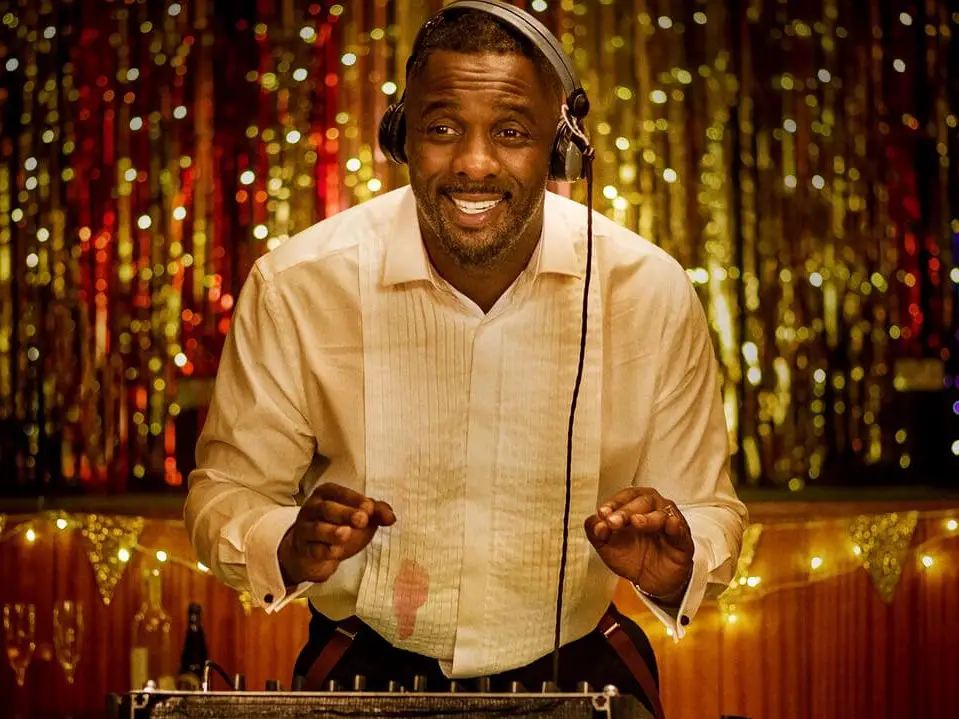On March 15 Netflix released “Turn Up Charlie,” a new sitcom of eight episodes following the down-on-his-luck, has-been DJ Charlie Ayo.
I have to say I was surprised when the trailer was released and cameras focused on a comedic Idris Elba, breaking the traditional, dramatic style the actor is best known for. Who knew Elba was ready to take on the world of comedy? Well, it’s not exactly a comedy — there are moments of dramatic familial conflict.
The show begins as Charlie is reconnected with his childhood best friend, David, at a mutual friend’s wedding. The two characters went separate ways in adulthood, and Charlie has been demoted from playing large raves and venues to working a wedding in the hopes of scraping by.
He currently lives with his aunt and cousin in London while his Nigerian parents believe he is the owner of a successful music business. The facade manages to survive his parents’ scrutiny, all while maintaining the illusion Charlie is still with his ex-girlfriend. David has also changed, but gone the opposite direction of his best friend. A far cry from the rough and tumble child he once was, David is now a famous actor married to Sara, an internationally known DJ.
Upon reconnecting at the wedding, David invites Charlie over to catch up, as David and his family have recently relocated to London to give 11-year-old Gabrielle (Sara and David’s daughter) a stable living environment. No more world tours and shifty house parties for the young girl — or so one would hope.
Gabrielle has never gone to a real school, and her childhood up to this point has been anything but typical. Her personality is one of high intelligence, and she is a child who feels comfortable mouthing off on a regular basis to all adults, including her parents. The purpose of the family’s move was to encourage both parents to spend more time with their child, as David was frequently on film sets and Sara had to drag Gabrielle on world tours.
Upon David welcoming Charlie into his house, Charlie and Gabrielle meet as the millionth nanny leaves, denouncing the child as evil spawn of the devil himself. Sadly, both parents need to leave for work and the only other adult in the vicinity is Charlie. David begs Charlie to watch Gabrielle for just one day, but it will not be the last time David abandons his child with the aspiring musician.
As expected, the day goes much better than with the previous nanny. Charlie takes Gabrielle to Camden Stables and, more importantly, treats her like a human being. And it appears Gabi and Charlie actually get along — for a little while.
Charlie makes it through the day. This, a sign to both of Gabrielle’s parents, prompts them to ask Charlie if he would take the position of her nanny. He reluctantly agrees because the parents wish Gabi’s caretaker to be someone they know rather than a stranger. However, Gabrielle, upon hearing Charlie will be her nanny, once again adopts the mantle of devil child, definitely a response to her parents ignoring of her as a person in the family.
Clearly the routine of slight neglect is normalized as David gives little gifts every time he has to leave Gabi when rushing off to work, which he does on numerous occasions. He is not exactly parent of the month. Over the series, though, Sara seems to realize how irreplaceable her time spent with Gabi is, and her parenting contrasts sharply with her partner’s. But even though her mother remains present, Charlie remains Gabrielle’s major caretaker. Over the series, Sara and Charlie become closer, because their main interest, arguably more so than their music, is Gabrielle.
While “Turn Up Charlie” may not be the flashiest thing to hit Netflix, it is most definitely a heart-warming dramedy that brings heavier, reality-filled themes to the table. Parental responsibilities and expectations take the heart of the show. Dichotomy is created between parental figures who place their children first, versus those who place reputation first, and the show also explores the ramifications of a line of neglectful parents, as David’s own parents do not seem to be ideal child-raisers either.
What family is, who family is and the value family has are the backbone of this musical, bright sitcom.
“Turn Up Charlie” is a heartwarming tale, miles away from the work normally associated with Elba’s acting career. It may not be the most complex work, unlike Elba’s performances on “The Wire” and “Luther,” or the most financially lucrative, like his run as Heimdall in the “Thor” movies, but it is a nice watch. And it is somewhat inspired by his life experiences as a DJ.
According to Elba in an interview with Collider, “Netflix was the first pitch, and they bought it in the room, which was incredible because we didn’t have a story, a script, or a [show] bible. We had nothing, but a bunch of anecdotes from me.”
The show has clearly developed since then, further paying homage to having to climb your way up the ladder of notoriety. Elba’s “Turn Up Charlie” takes his love of deejaying and allows that passion to grow into another project, an actual sitcom series.
















